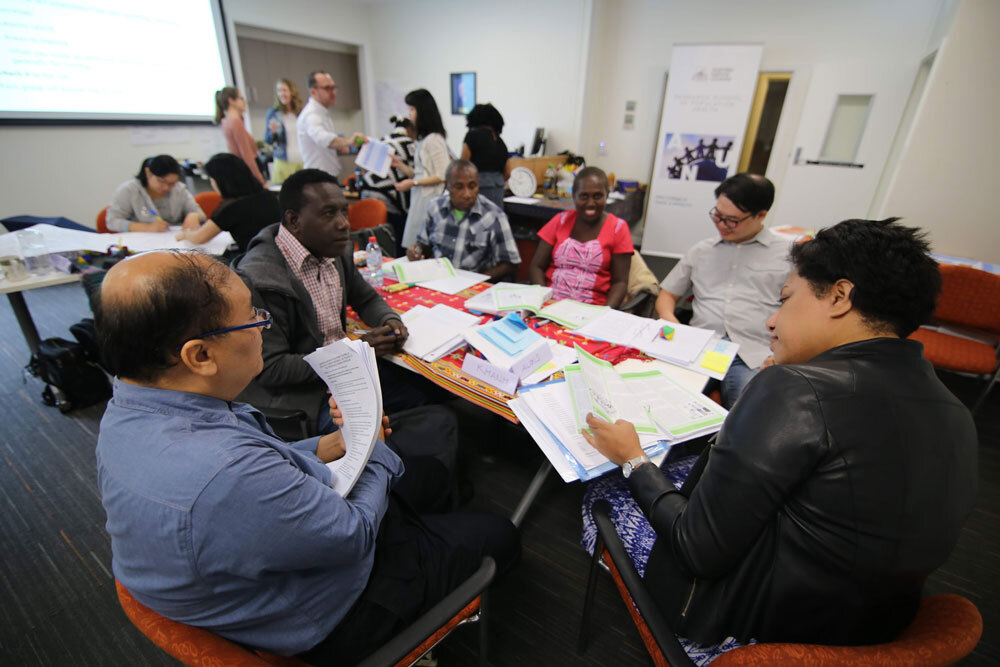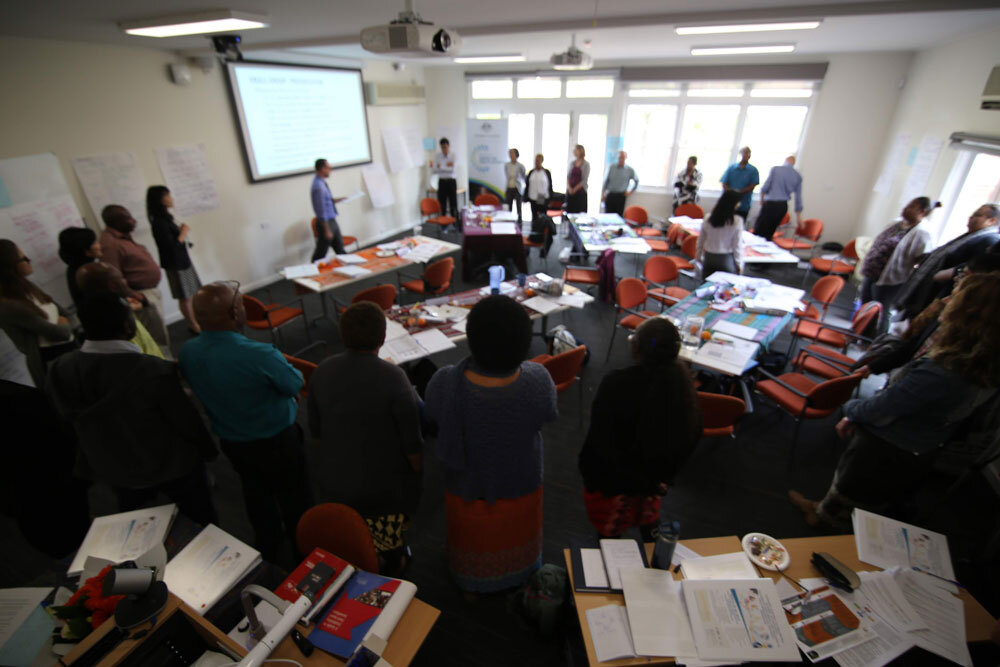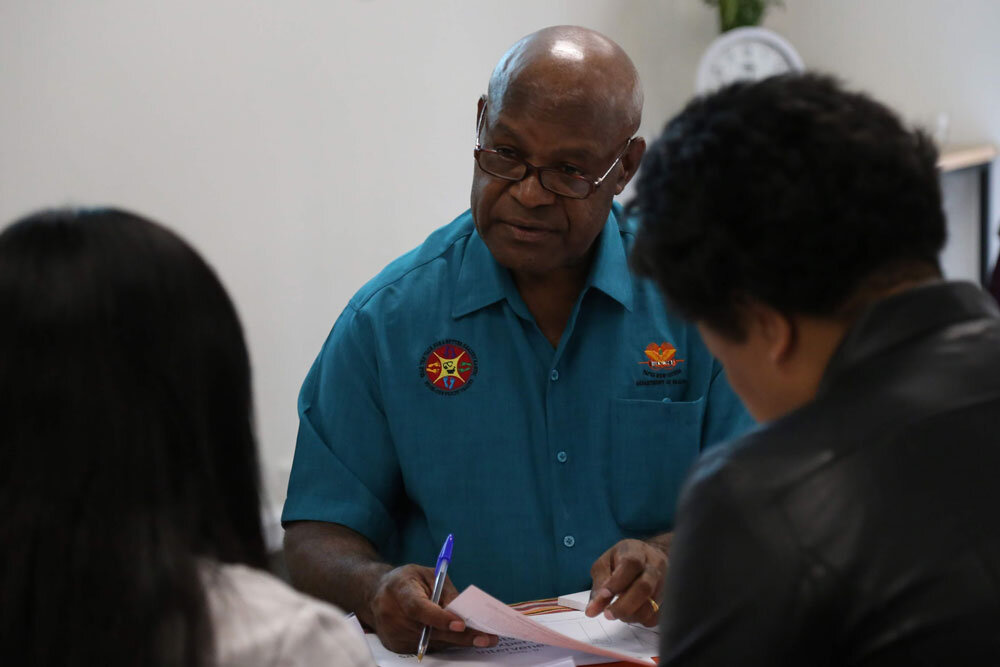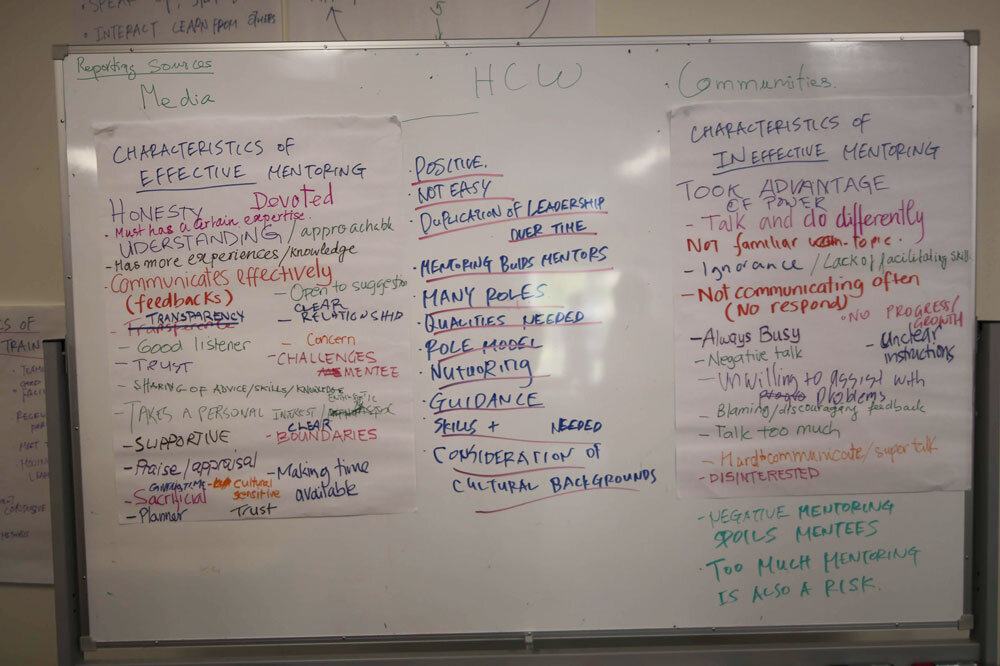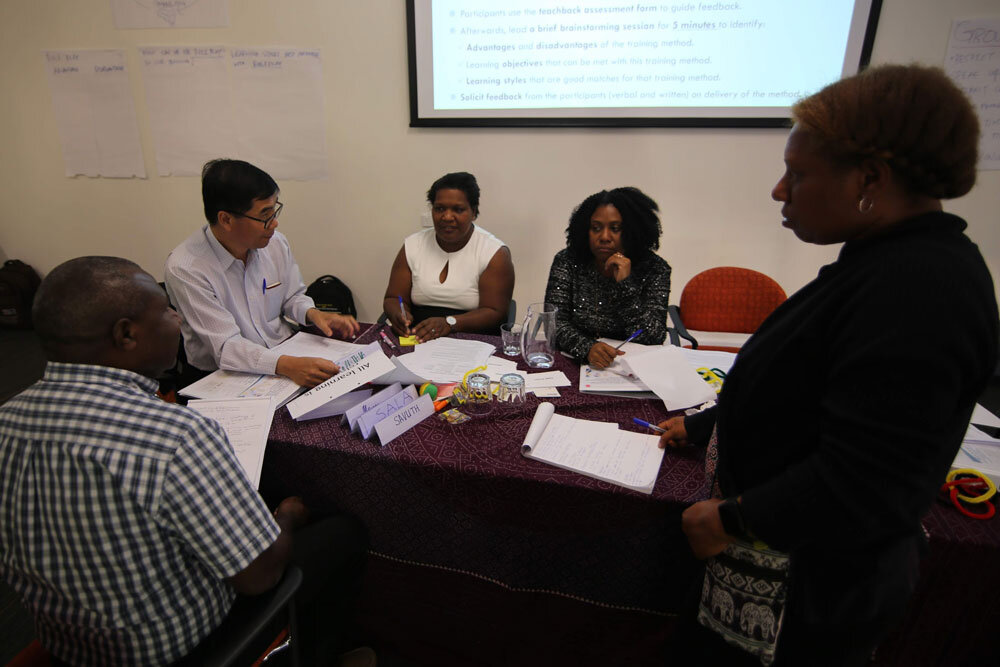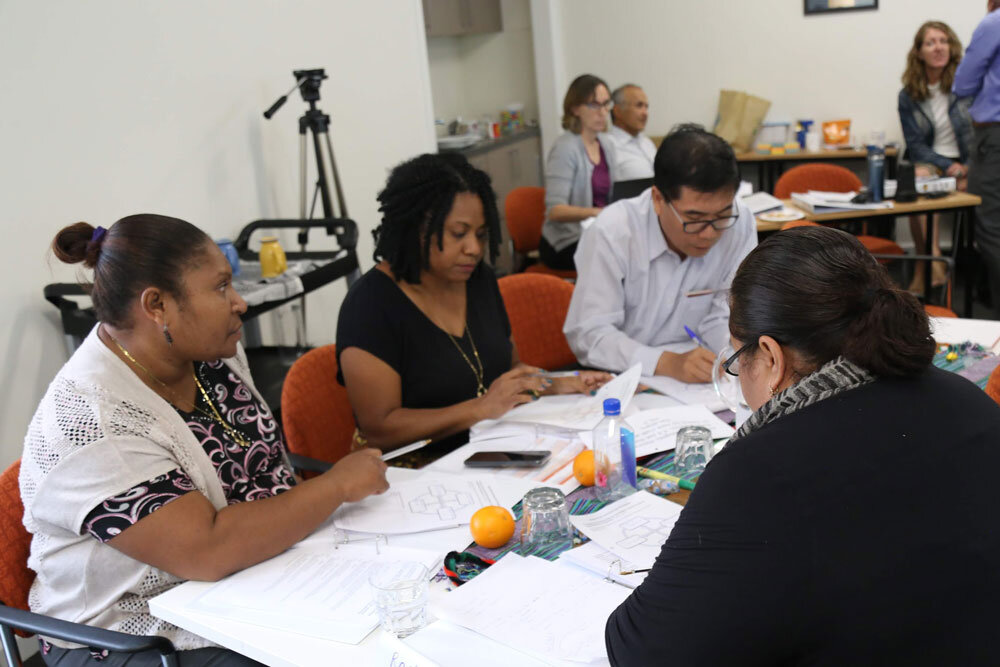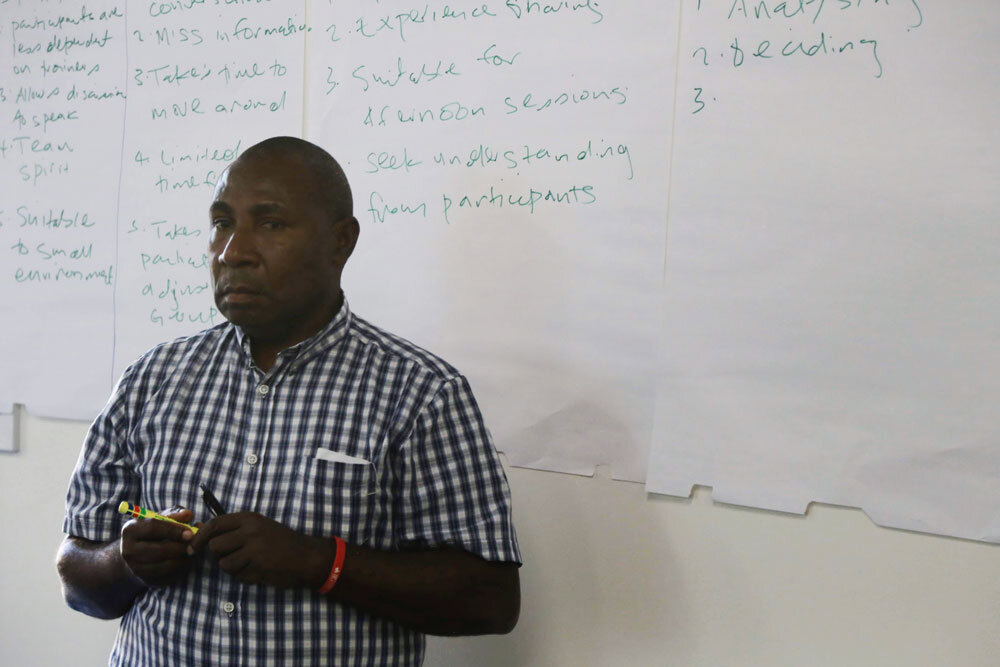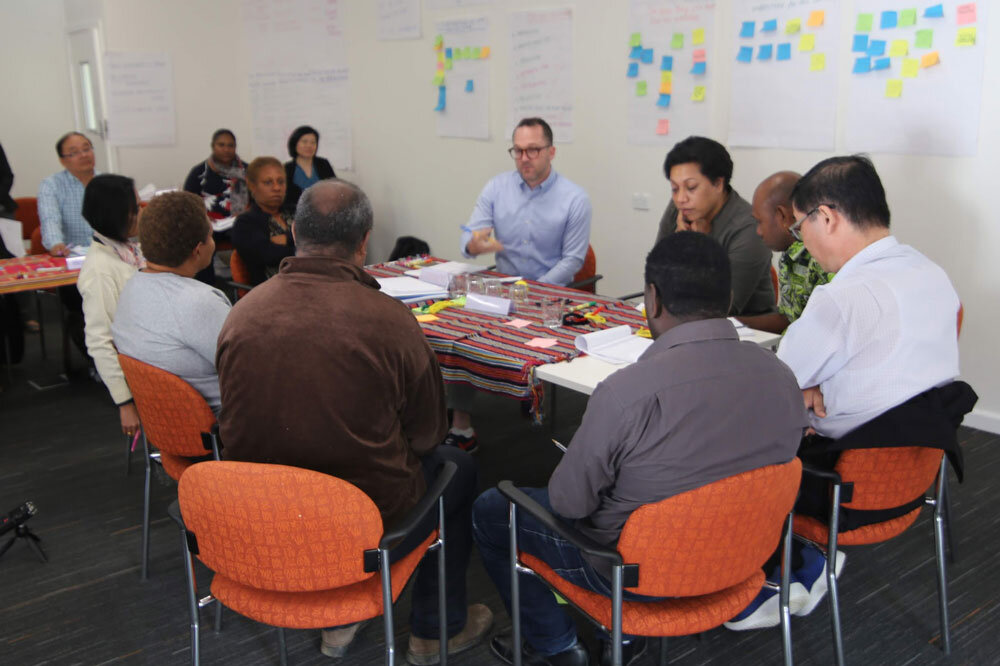Training of FETP Trainers
The FEiA Train the Trainer program is focused on engaging and enhancing regional FETP leadership, people-people partnerships and improving program sustainability through participation in Train-the-Trainer programs.
What is Training of Trainers?
The aim of Train the Trainer workshops is to build knowledge, skills, and confidence in adapting and delivering field epidemiology training curricula. With this knowledge, skills, and confidence, faculty are more likely to take ownership of training and thus advance the sustainability of FET programs and the health security system. Specific learning outcomes target the characteristics of effective trainers, tools and techniques of facilitation, activities for engaging learners, principles for designing courses, and contextual factors for training in-country.
Why is Training of Trainers Needed?
A strong, competent and confident local faculty from the national government is an essential part of building a vibrant and sustainable program that has real impact. Train-the-Trainer programs are designed to facilitate the transition of FETP leadership to local faculty. The Train-the-Trainer program will increase confidence of local faculty to lead, develop and deliver field epidemiology training in their country.
What does Training of Trainers look like?
Each Training of Trainers program is designed to meet identified needs and local context.
In a May 2022 Training of Trainers workshop in Papua New Guinea, for example, there were 18 people from the National Department of Health (NDoH) and Provincial Health Authorities(PHAs). Most participants were senior or junior faculty of FETPNG, and some were national Rapid Response Team (RRT) trainers.
The workshop was called ‘Learning Learning to Transform Training: An initiative to advance FETPNG ownership and sustainability’. It used Adult Learning principles and Experiential Learning Theory to engage participants and achieve the outcomes. The course adopted a flexible agenda to meet participants’ evolving needs and relied on repetitive practice with new knowledge and skills, followed by facilitator-, peer-, and self-reflection to inform feedback on practice. ‘Learning Learning to Transform Training’ achieved its goal.
The workshop took place one week before the introductory course for cohort eight of the intermediate FETPNG program. Specific learning outcomes targeted the characteristics of effective trainers, tools and techniques of facilitation, activities for engaging learners, principles for designing courses, and contextual factors for training in PNG.
The facilitators named the following objectives to achieve the workshop goal:
1. Improve participants’ skills for assessing the appropriateness of training content and approaches for the participants
2. Increase awareness and knowledge of different kinds of training activities and approaches
3. Improve knowledge of how to adapt training for participants and the setting
4. Increase confidence and skill in the delivery of training
5. Establish a familiarity with theories and frameworks for structuring training courses
After the workshop, participants adapted and delivered the intermediate FETPNG introductory workshop curriculum to the new cohort of trainees. This was the first time FETPNG faculty had led and delivered the intermediate course. Furthermore, facilitator observations, participant group evaluations, and participant peer- and self-reflection demonstrated achievement of each of the learning outcomes.
Participants’ evaluations showed marked improvement in confidence across all learning outcomes (see below).
If you would like to read more about the Train the Trainer workshop in PNG, you can download the full report by clicking on the button below:
If you are interested in having FEiA run a Train the Trainer workshop, please contact us today.
